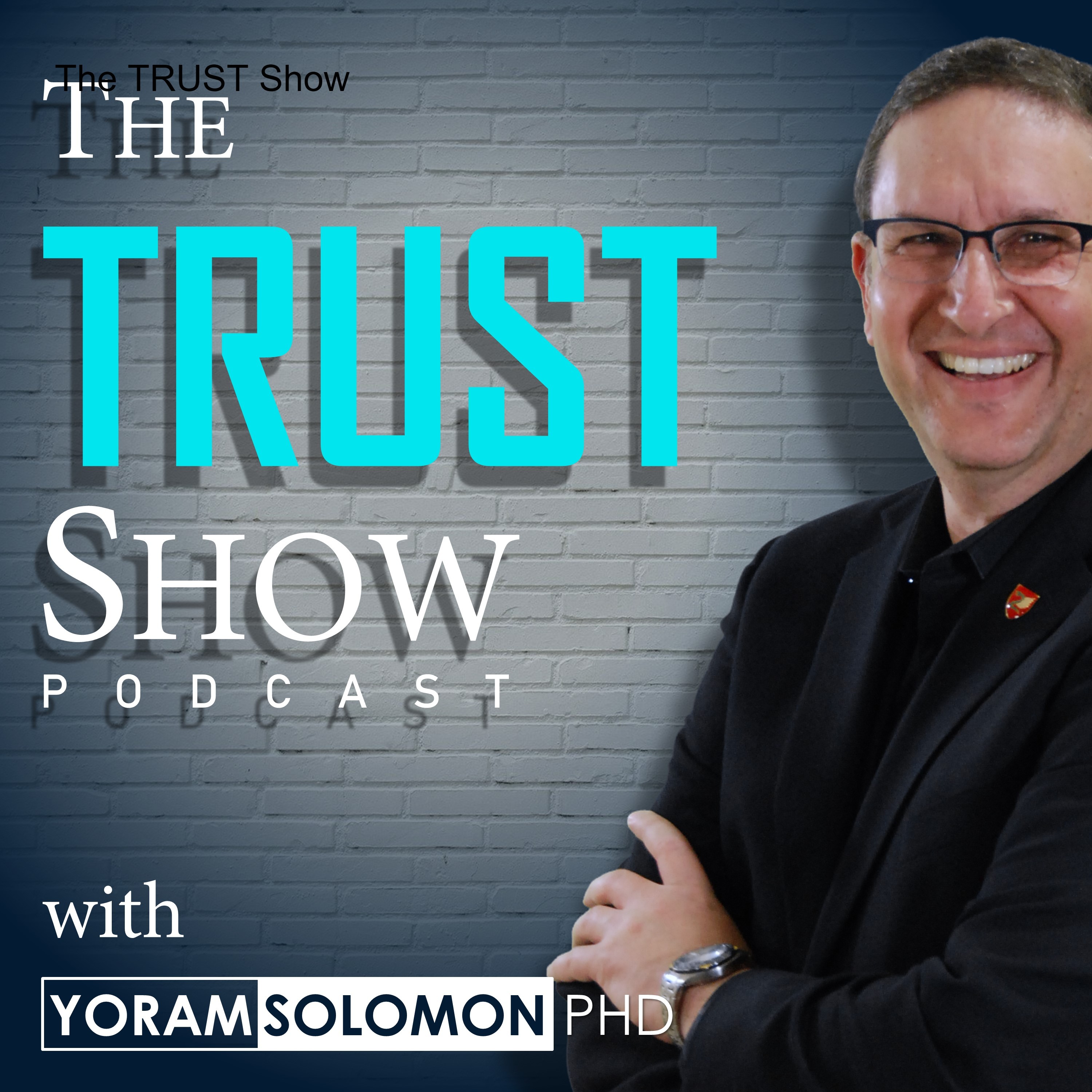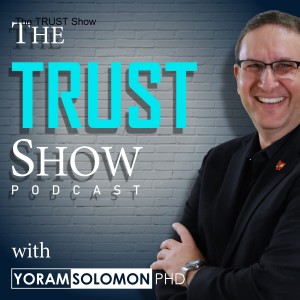
16.1K
Downloads
190
Episodes
Trust is not what you think it is. It is not absolute or universal. Trust is relative. The same behavior that would cause one person to trust you could cause another person to distrust you. The level of trust someone has in you is the product of their trustfulness (their willingness to trust other people) and your trustworthiness. There is almost (I said ALMOST) nothing you can do about the former, and everything you can do about the latter. Because of that, you must evaluate your own trustworthiness one relationship at a time, separately. Odds are, though, that the same behaviors that are holding you back from being more trusted in one relationship are holding you back from being more trusted in other relationships. Welcome to The Trust Show. I’m your host, Yoram Solomon, a top 10 trust expert and researcher, the author of the book of trust, and the creator of the Trust Habits® workshop that helps people and organizations form new habits that change old behaviors, build trust, and transform organizations. In this educational podcast, I will challenge you to think differently about trust, through the 8 laws of trust and the 6 components of trustworthiness. I will share my own stories, experiences of others, trust research, and sometimes, reflect on a news item. And through those, I will show you how to build trust, be trusted, and know who to trust. Because the answer to this question will have the biggest impact on your personal and professional, success or failure: can you be trusted?
Episodes

Tuesday Jun 13, 2023
S9E11: 7 TRUST Insights
Tuesday Jun 13, 2023
Tuesday Jun 13, 2023
My framework for Trust Habits® includes the 8 laws of trust and the 6-component relative trust model. But from them, there are 7 insights about trust, which are shared in some detail here in this episode. Those are:
(1) Trust turns a group of creative and productive individuals into a creative and productive team.
(2) Trust is Relative. The same behavior that would cause one person to trust you could cause another to distrust you.
(3) My trust in you is the product of my trustfulness (willingness to trust people) and your trustworthiness.
(4) Your trustworthiness is made of who you are and what you do when you interact with me
(5) If you trust someone, and you show them that you trust them, they will behave in a trustworthy way.
(6) If you eliminate one bad behavior, you will increase your trustworthiness more than if you add one good behavior.
(7) Forming a habit takes as long as it takes until it is easier to continue than to stop it, and you don’t need extrinsic motivation anymore.

No comments yet. Be the first to say something!